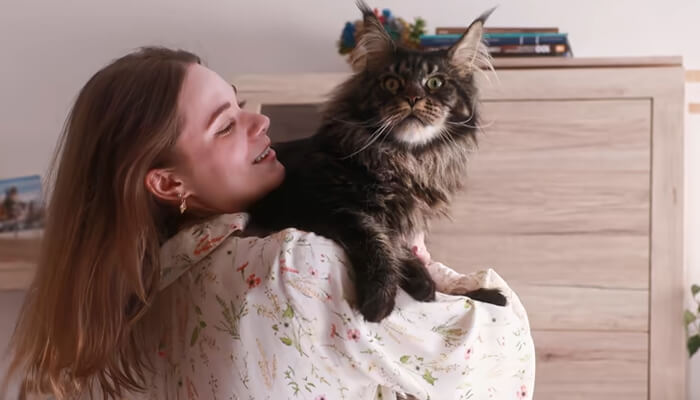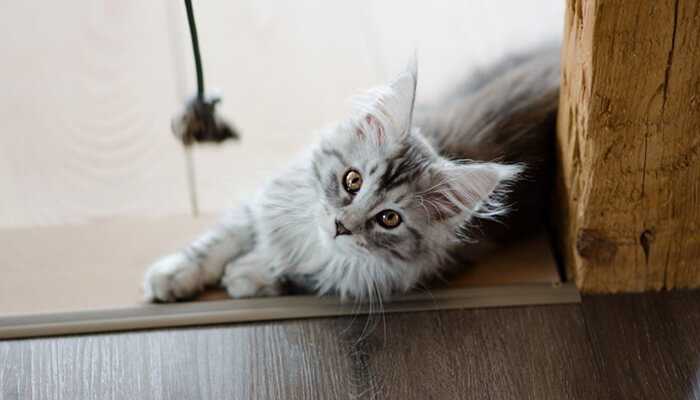The majestic Maine Coon, with its flowing mane, tufted ears, and gentle disposition, captures the hearts of many. For some, this admiration can evolve into a desire to become a breeder, contributing to the continuation of this magnificent lineage. While the idea of raising adorable Maine Coon kittens to make a living is incredibly appealing, becoming a responsible maine coon cat breeder is a significant undertaking that requires far more than just a love for cats. Before you dive in, here’s a realistic look at what you need to know about becoming a Maine Coon breeder.
How to Become a Responsible Maine Coon Breeder
1. It’s a Significant Commitment of Time, Money, and Heart
Breeding isn’t a casual hobby; it’s a profound commitment. You’ll dedicate countless hours to research, vet visits, daily care, cleaning, and kitten socialization. Emotionally, it can be demanding, involving sleepless nights, potential heartbreak, and the immense responsibility for living beings. For a glimpse into the quality and beauty that proper breeding can achieve, visit Slowblink Maine Coons.
2. The Financial Investment: Substantial Upfront, Potential for Profit
While becoming a Maine Coon cat breeder can indeed be profitable, it requires substantial upfront and ongoing investments. You’re looking at thousands of dollars per cat for high-quality, health-tested breeding stock alone. Beyond that, significant costs include ongoing comprehensive health screenings (often hundreds per test per cat), premium food and supplies, facility setup, stud fees, and routine or emergency veterinary care. It’s crucial to understand that kitten prices reflect these deep commitments to health, genetics, and ethical care, making responsible breeding a financially demanding endeavor that requires careful planning to yield returns.
3. Genetics and Health Are Paramount
This is arguably the most crucial aspect of responsible breeding. You must gain a deep understanding cat breeds Maine Coon genetics, common breed-specific health issues (like Hypertrophic Cardiomyopathy HCM, Hip Dysplasia HD, and Spinal Muscular Atrophy SMA), and how to screen for them. Ethical breeders rigorously test their breeding cats and only breed those free of genetic defects, ensuring the health and longevity of future generations. This requires working closely with a veterinarian experienced in breed-specific health concerns.

4. Education is Your Best Friend
You can’t learn enough. Immerse yourself in the breed standard set by organizations like the Cat Fanciers’ Association (CFA) or The International Cat Association (TICA). Read books, join reputable breeder forums, and, most importantly, find experienced mentors. A good mentor can guide you through the complexities of genetics, breeding cycles, kitten care, and navigating the nuances of the breeding world. Don’t be afraid to ask questions and learn from those who have walked the path before you.
5. Quality Over Quantity, Always
Resist the temptation to start with multiple breeding cats or to breed frequently. Focus on a select few high-quality individuals who embody the breed standard and possess excellent health and temperament. Over-breeding can lead to stressed queens, unhealthy kittens, and a damaged reputation. The goal should be to improve the breed, not merely to produce kittens.
6. Facilities and Daily Care are Demanding
Your home and cattery must be set up to safely and comfortably house breeding cats and litters. This means dedicated, easily cleanable spaces for queens and kittens, separate areas for potential stud cats, and plenty of room for adult cats to live a happy, enriched life. Daily tasks include meticulous cleaning, feeding high-quality nutrition, administering medications if needed, grooming, and extensive socialization for kittens to ensure they are well-adjusted.
7. Finding the Right Homes is Your Ultimate Responsibility
Your commitment extends far beyond the moment a kitten leaves your home. A responsible breeder meticulously screens potential buyers to ensure their kittens go to loving, prepared forever homes. This often involves detailed applications, phone interviews, and comprehensive contracts that include health guarantees, spay/neuter clauses, and return policies. You become a resource for these families for the lifetime of the cat.
8. Join Breed Clubs and Network
Becoming part of the wider Maine Coon breeder community through breed clubs offers invaluable resources, educational opportunities, and a chance to meet other dedicated breeders. Attending cat shows is also a great way to learn about the breed standard, network, and gain recognition.
Becoming a Maine Coon breeder is a challenging yet profoundly rewarding journey. It demands dedication, continuous learning, significant financial investment, and an unwavering commitment to the health and welfare of every cat. If you’re willing to embrace these realities, you can truly contribute to the legacy of these magnificent “gentle giants.”



